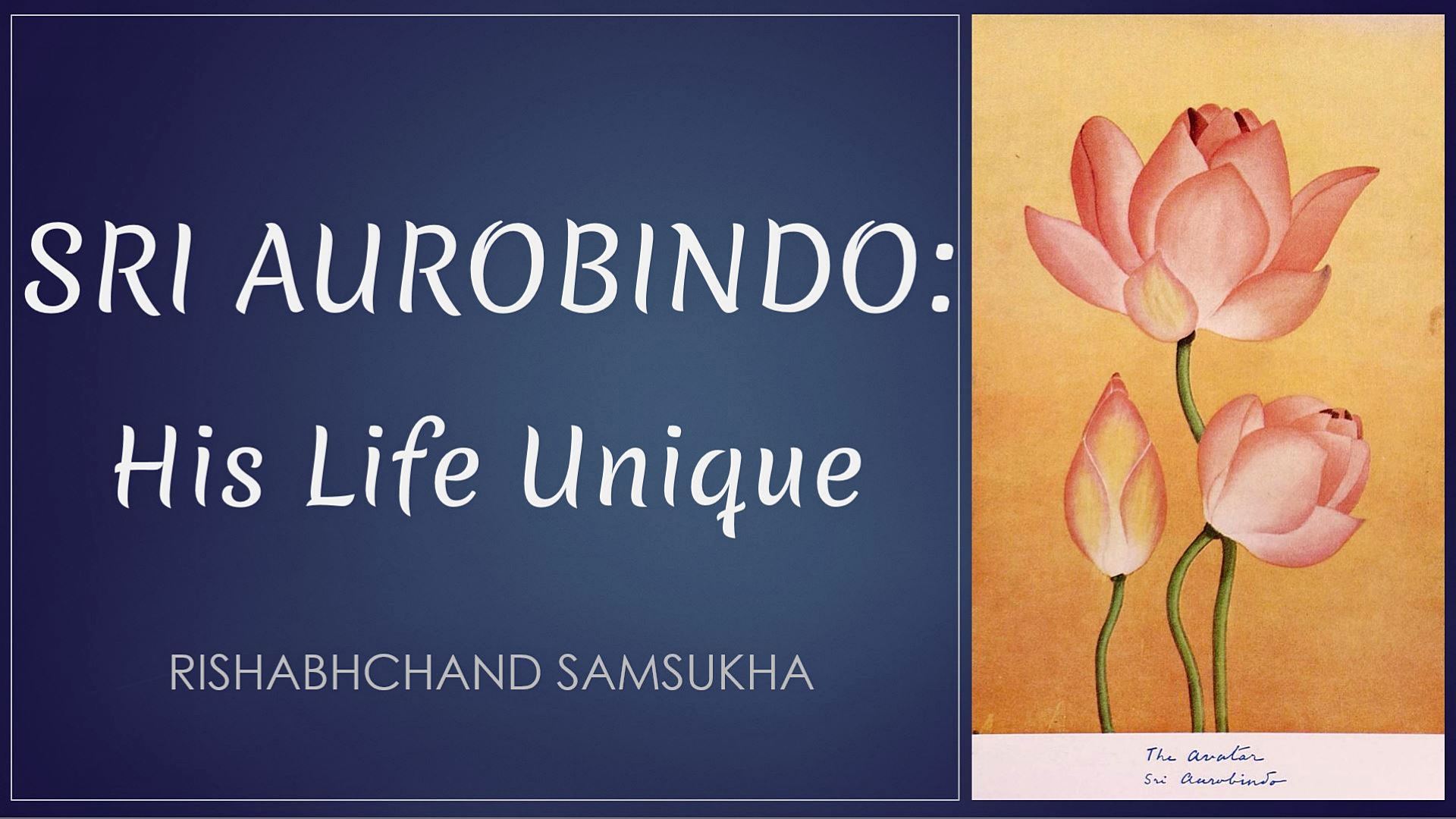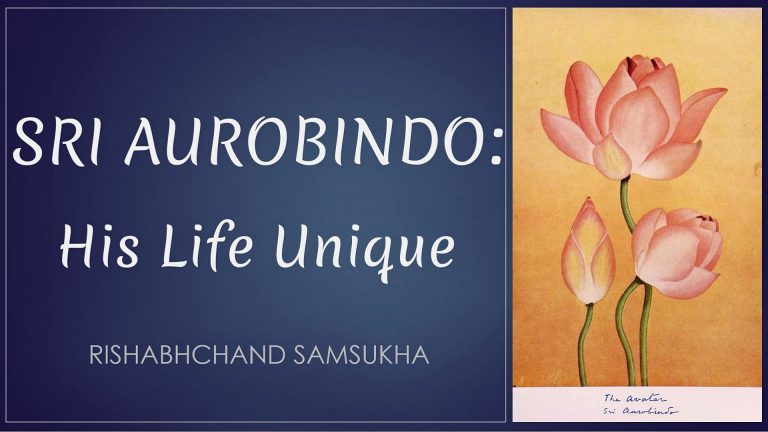We reproduce below some of the secret documents of the British Government which provide more amusing fiction and fabrication than facts about Sri Aurobindo’s activities and whereabouts.
At the Feet of The Mother
Sri Aurobindo: His Life Unique

A unique biography of Sri Aurobindo, which was written by Rishabhchand Samsukha in response to a request from The Mother, reviewed chapter by chapter by Nolini da, and translated by Andre Morisset for its bilingual publication at the Bulletin over the period of 10 years starting in 1960.
For the first few years of Sri Aurobindo’s stay at Pondicherry, life was rather hard on account of a chronic paucity of funds. Food was scanty [...] One towel served them all with exemplary faithfulness. But these hardships failed to affect Sri Aurobindo in the least.
Pondicherry and its suburbs were important both culturally and commercially in the good old days of the Roman Empire. And at no distant date the whole world will turn to Pondicherry again not only for culture and education and commerce and industry but for the Light of the New Dawn.
On the 15th of August, 1914, Sri Aurobindo started a monthly journal called Arya. [...] We find that Sri Aurobindo started in the Arya with his magnum opus, The Life Divine, and The Secret of the Veda, and The Synthesis of Yoga — all three embodying the philosophical, the mystical, and the psychological and spiritual expressions of his Yogic experiences.
We reproduce below long passages from the Reminiscences of Nolini Kanta, as they are extremely valuable, being the only authentic record available about how the Mother lived and worked and moved about in the good old days and what the inmates of Sri Aurobindo’s house and others who were connected with them learnt from the Mother’s presence and example
We reproduce below the seven letters written by Sri Aurobindo and the Mother to each other on the subject of their Yoga between 1915 and 1916. They are extremely important as they throw much light on their joint mission and the trials and difficulties they had to pass through
We quote a part of Purani’s report of the interview which shows that even in 1918 Sri Aurobindo knew and assured him that the freedom of India would be won by other means than revolutionary activities.
In 1919 Barin wrote to Sri Aurobindo asking him about his personal sadhana, the future of the country and the nature of the movement to be carried on for its freedom and resurgence. Sri Aurobindo’s reply was a long one covering practically all aspects of national life and indicating his own line of spiritual work for humanity.
The West has put its faith in its science and machinery and it is being destroyed by its science and crushed under its mechanical burden. It has not understood that a spiritual change is necessary for the accomplishment of its ideals. The East has the secret of that spiritual change, but it has too long turned its eyes away from the earth. The time has now come to heal the division and to unite life and the spirit.

